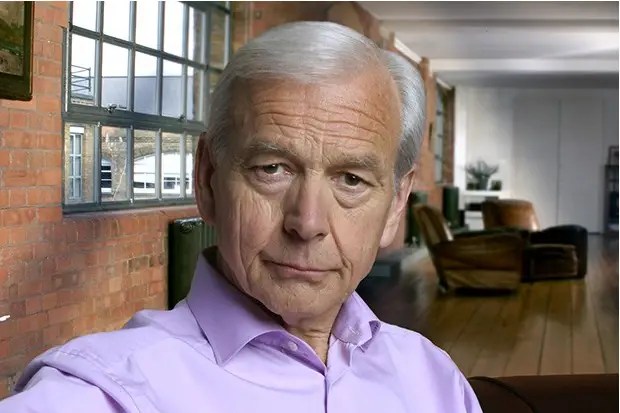Functionalists and Marxists argue religion prevents change, Max Weber and others disagree!
Does religion cause social change, or prevent it?
Functionalists and Traditional Marxists have generally argued that religion prevents social change. Neo-Marxists and the Social Action theorist Max Weber have argued that religion can be a force for social change.
There are wide variety of opinions with Feminist thought as to the relationship between religion and social change. Some Feminists tend to side with the view that religion prevents social change. Other Feminists recognise the potential for religion to bring about social change.
This post considers some of the arguments and evidence against the view that religion prevents social change.
Religion prevents social change
Arguments and evidence for the view that religion prevents social change
Functionalist thinkers Malinowski and Parsons both argued that religion prevents social change by helping individuals and society cope with disruptive events that might threaten the existing social order. Most obviously, religion provides a series of ceremonies which help individuals and societies cope with the death of individual members.
Marx believed that religion helped to preserve the existing class structure. According to Marx religious beliefs serve to justify the existing, unequal social order and prevent social change by making a virtue out of poverty and suffering. Religion also teaches people that it is pointless striving for a revolution to bring about social change in this life. Rather, it is better to focus on ‘being a good Christian’ (for example) and then you will receive your just rewards in heaven.
Neo-Marxist Otto Maduro argued that historically the Catholic Church in Latin America tended to prevent social change. It did so by supporting existing economic and political elites, thus justifying the unequal social order. However, he also recongised that religion had the potential to be a force for social change (see below)
Religion causes social change
Arguments and evidence for the view that religion causes social change:
Max Weber’s ‘Protestant Ethic and the Spirit of Capitalism‘ is one of the best loved accounts of how religion can bring about social change. Weber pointed out that Capitalism developed first in England and Holland, taking off in the early 17th century (early 1600s). Just previous to Capitalism taking off, Protestantism was the main religion in these two countries. This was unlike most other countries in Europe at that time which were Catholic. To cut a very long winded theory short, Max Weber argued that the social norms instilled by Protestantism laid the foundations for modern capitalism.
Neo-Marxist Otto Maduro pointed to the example of Liberation Theology in Latin America to demonstrate that religion can act as a force for social change. He further suggested that this is especially the case where the marginalized have no other outlet for their grievances than religious institutions.
Reverend Martin Luther King and the broader Baptist Church in the Southern United States played a major role in the Civil Rights movement in 1960s America. This movement effectively helped to end racial segregation in America and secure more equal political rights for non-whites.
Martin Luther King was very much inspired by Gandhi’s religiously inspired practice of Non Violent Direct Action. This involved the use of peaceful protest and resisting of violence in order to bring about social change.
The Arab Spring which swept across the Middle East and North Africa between 2010-2014 offers a more contemporary example of the role of religion in social change. Islamic groups were very active in using social media to highlight the political injustices in countries such as Tunisia and Egypt.
Some forms of religious fundamentalism have led to significant social changes. For example the attacks on the Twin Towers in September 2001 prompted the USA to initiate war with Afghanistan and then Iraq. This also resulted in a shift towards more surveillance in western societies and more of a culture of fear.
Samuel Huntingdon would argue that globalisation has made religion a more important source of identity in recent years. He believes there is a clash between fundamentalism and western civilisation. Hence globalisation and religion together are drivers of negative social change.
Religion and social change further analysis
Secularisation may well mean that religion has lost its power to either prevent or cause social change. Especially with disengagement, religion has less influence over political and social processes.
Image Source
http://ipost.christianpost.com/post/10-powerful-quotes-from-rev-dr-martin-luther-king-jr-on-faith
Beliefs in society revision bundle for sale
If you like this sort of thing then you might like my ‘beliefs in society’ revision bundle.
The bundle contains the following:
- Eight mind maps covering the sociological perspectives on beliefs in society. In colour!
- 52 Pages of revision notes covering the entire AQA ‘beliefs in society’ specification: from perspectives on religion, organisations, class, gender ethnicity and age and secularisation, globalisation and fundamentalism.
- Three 10 mark ‘outline and explain’ practice exam questions and model answers
- Three 10 mark ‘analyse using the item’ 10 practice exam questions and answers
- Three 30 mark essay questions and extended essay plans.
The content focuses on the AQA A-level sociology specification. All at a bargain price of just £4.99!
I’ve taught A-level sociology for 16 years and have been an AQA examiner for 10 of those, so I know what I’m talking about, and if you purchase from me you’re avoiding all those horrible corporations that own the major A-level text books and supporting a fully fledged free-range human being, NOT a global corporate publishing company.
Signposting
This post has primarily been written for students of A-level sociology, studying the beliefs in society module, usually taught in the second year.
Please click here to return to the homepage – ReviseSociology.com
Like this:
Like Loading...







